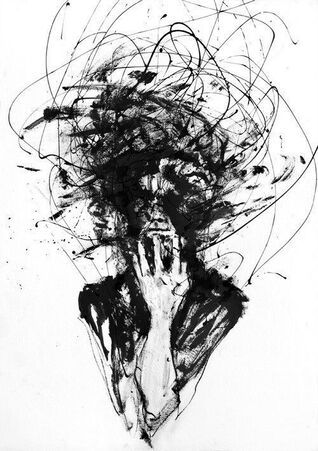Depression

Depression is a debilitating condition characterised by sustained low mood and a marked loss of pleasure/interest in everyday activities. It is more than just ‘feeling down’ in response to specific life circumstances, but instead involves a more intransigent and pervasive experience of hopelessness and despondency. Additionally, disturbances in a number of different areas have been noted in those experiencing a major depression:
Episodes of depression may sometimes seem to come out of the blue, at other times the onset clearly occurred in the context of sustained life stresses, trauma or complicated bereavements. Sometimes in the course of therapy, the context within which an apparently unprompted depression occurred can become more apparent.
In line with current research and Cognitive-Behavioural theory, I believe that our vulnerability to depression has its roots both in our genetics and in our own developmental stories. Our biology, childhood experiences and other earlier experiences interact with each other to make us more or less vulnerable to experiencing a major depression. Having a biological or developmental vulnerability to depression does not mean that ‘genetics is destiny’, that we are powerless in the face of these forces and have no means to help ourselves. Instead, I have witnessed the ability of others to improve their emotional world through increased self-knowledge and life changes.
In working with clients who experience difficulties with depression, I would tend to employ Cognitive Behavioural Therapy, mindfulness techniques and (if appropriate) skills from Dialectical Behavioural Therapy.
- Feelings of worthlessness and low self-esteem
- Feelings of guilt
- Feeling trapped
- Agitation or irritability
- Loss of the ability to think clearly and to concentrate
- Thoughts of death or of wanting to end one’s life
- Loss of energy, feelings of fatigue, feeling ‘slowed down’
- Sleep disturbance
- Changes in appetite
- Associated difficulties with anxiety
Episodes of depression may sometimes seem to come out of the blue, at other times the onset clearly occurred in the context of sustained life stresses, trauma or complicated bereavements. Sometimes in the course of therapy, the context within which an apparently unprompted depression occurred can become more apparent.
In line with current research and Cognitive-Behavioural theory, I believe that our vulnerability to depression has its roots both in our genetics and in our own developmental stories. Our biology, childhood experiences and other earlier experiences interact with each other to make us more or less vulnerable to experiencing a major depression. Having a biological or developmental vulnerability to depression does not mean that ‘genetics is destiny’, that we are powerless in the face of these forces and have no means to help ourselves. Instead, I have witnessed the ability of others to improve their emotional world through increased self-knowledge and life changes.
In working with clients who experience difficulties with depression, I would tend to employ Cognitive Behavioural Therapy, mindfulness techniques and (if appropriate) skills from Dialectical Behavioural Therapy.

